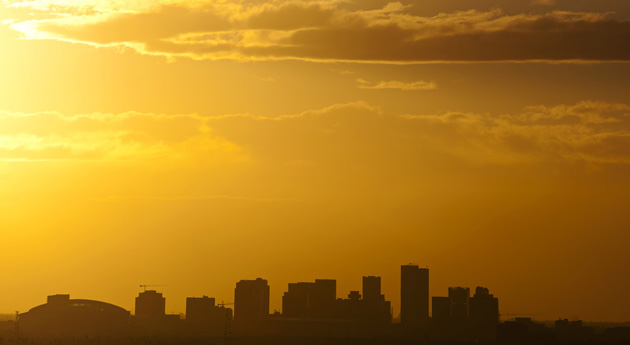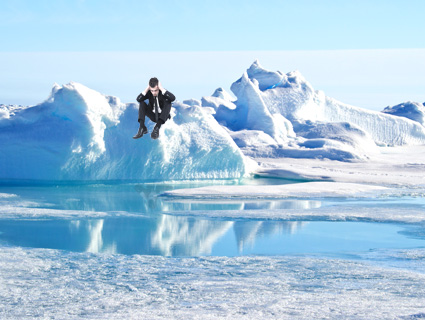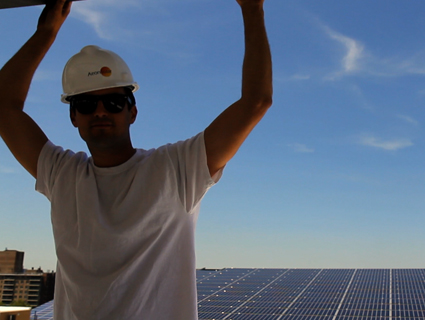
Sunset over Phoenix, Arizona.<a href="http://www.shutterstock.com/pic-72235192/stock-photo-the-city-of-phoenix-az-at-sunset.html?src=385a5f28a336f38517f051df5db65582-1-59">Action Sports Photography</a>/Shutterstock
This story first appeared on the Atlantic Cities website and is reproduced here as part of the Climate Desk collaboration.
You don’t really need to know much about the urban heat island effect to understand that Arizona is feeling it.
With both a rapidly expanding urban footprint and some of the highest temperatures in the country, the increasingly studied feedback loop of city surfaces absorbing heat and raising temperatures is in hyperdrive in Arizona. Mitigating the heat-holding effects of urban growth has become a high priority in the state’s metropolitan areas, and various efforts are underway to prevent some of that heat from soaking into the sponge that is the paved and built urban environment. But these efforts could also be making the region’s overall environmental future worse.
According to new research out of Arizona State University, efforts to improve the reflectance of Arizona’s cities by painting roofs white may be reducing rainfall across the state.
Published recently in the journal Environmental Review Letters, the study finds that average rainfall statewide could drop by as much as 4 percent if roof painting efforts continue. The increased reflectivity of these roofs has been found to modify hydroclimatic processes in the region by reducing what’s called evapotranspiration, or how much water evaporates back into the air from the land and its plants.
The researchers looked specifically at the “Sun Corridor”—the metropolitan areas of Phoenix, Tucson, Prescott and Nogales. By projecting growth and urban expansion models out to 2050, the researchers warn that overall precipitation could go down as the use of this white roof mitigation measure spreads across the growing urban footprint.
The researchers also note that the urban heat island itself is a major cause of reduced rainfall in the region. If urban expansion reaches the projected growth the region’s association of governments is expecting, the researchers say that urban heat island effects could result in a 12 percent reduction in rainfall averaged across the state.
Combating the urban heat island effect will be incredibly important for growing places like Arizona. Though this research shows that white roofs are effective at reducing urban heat island effects, there may also be side effects of this mitigation approach that shouldn’t be ignored.










